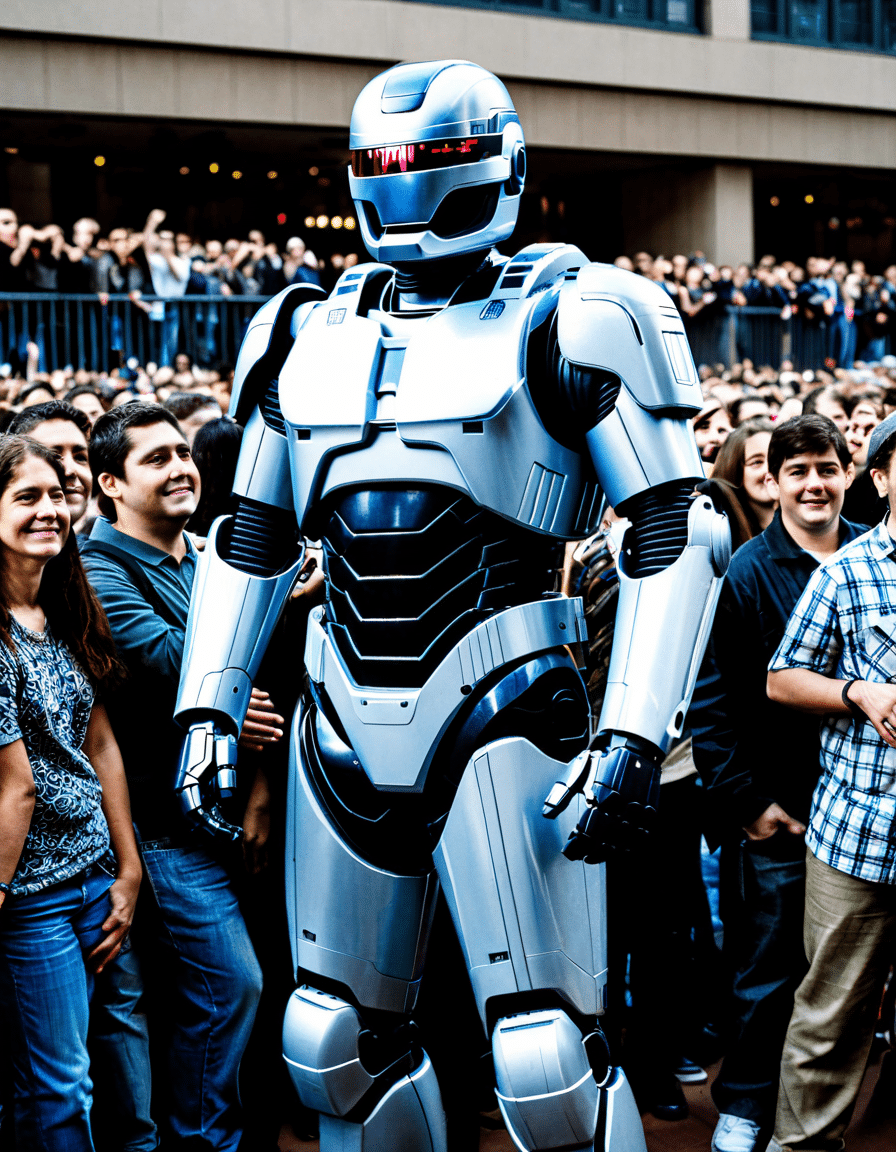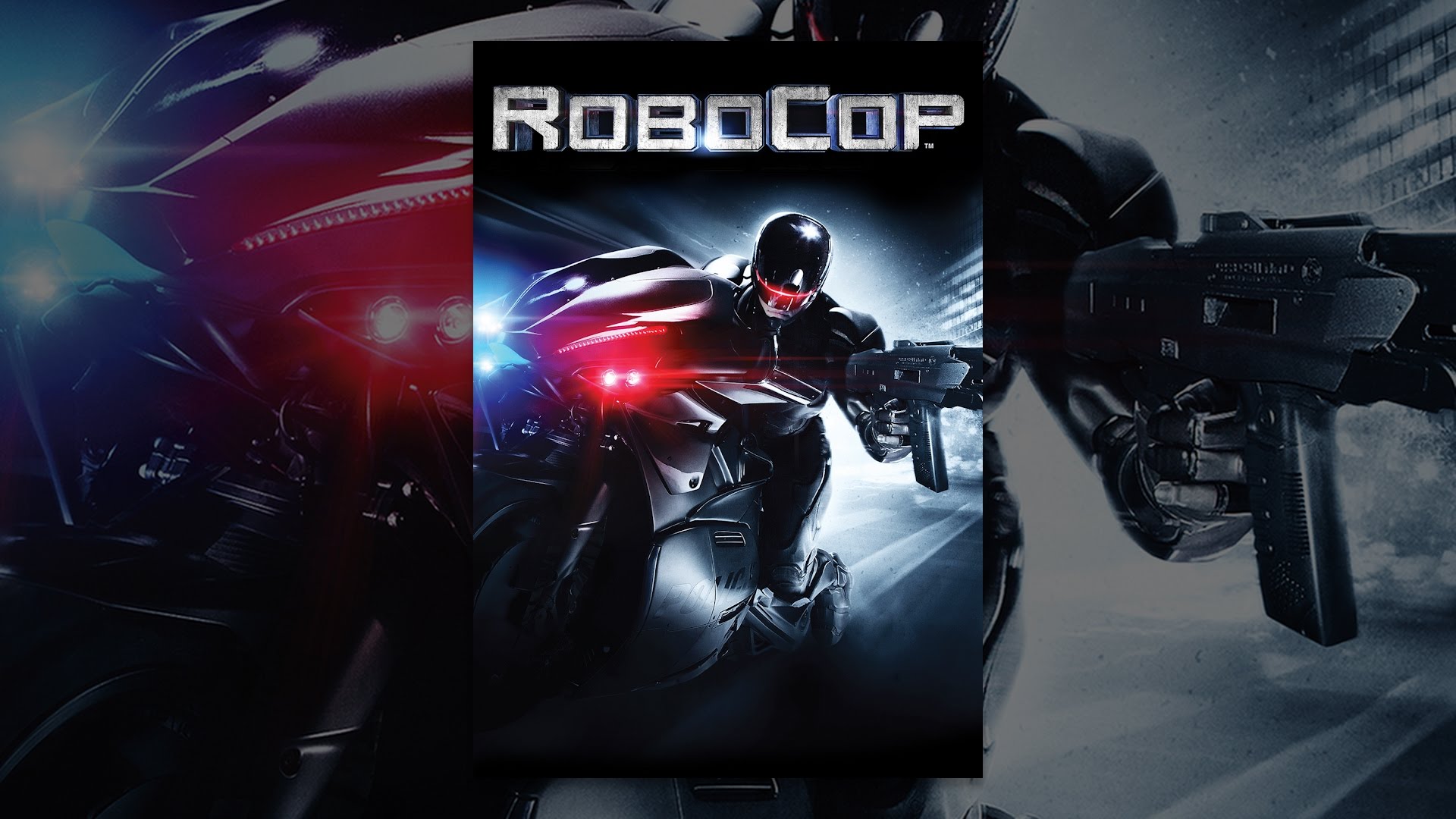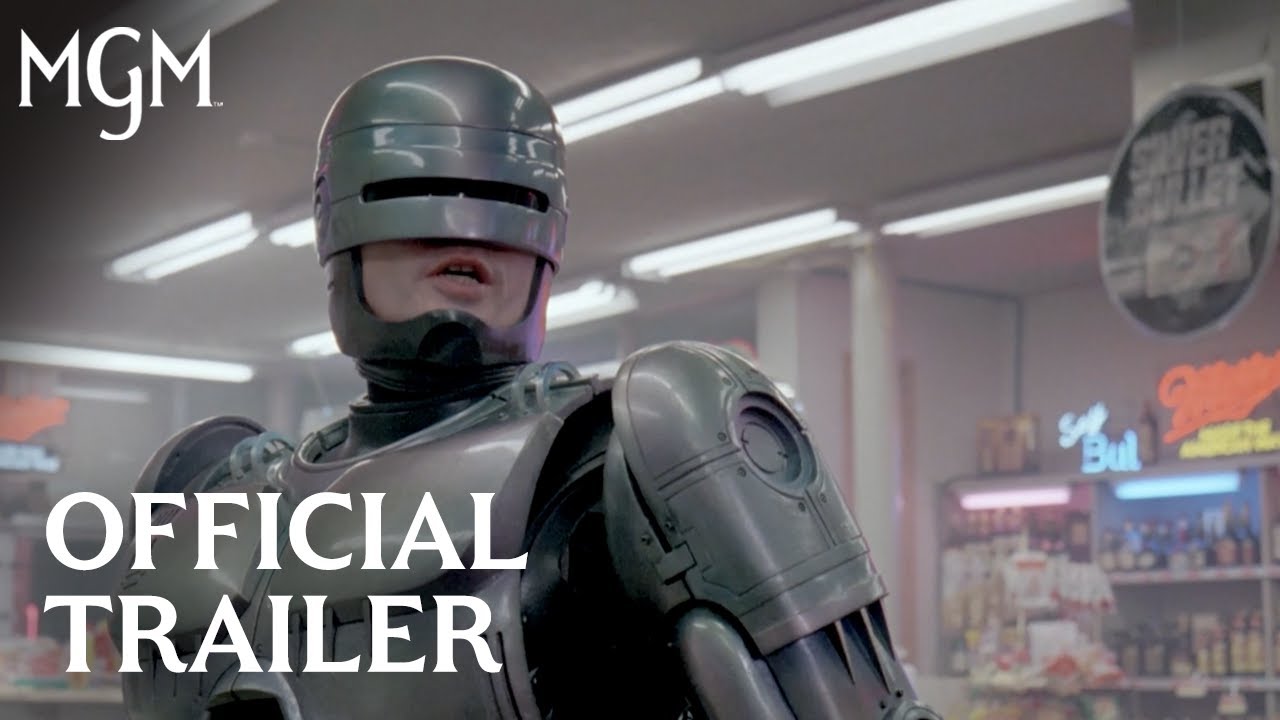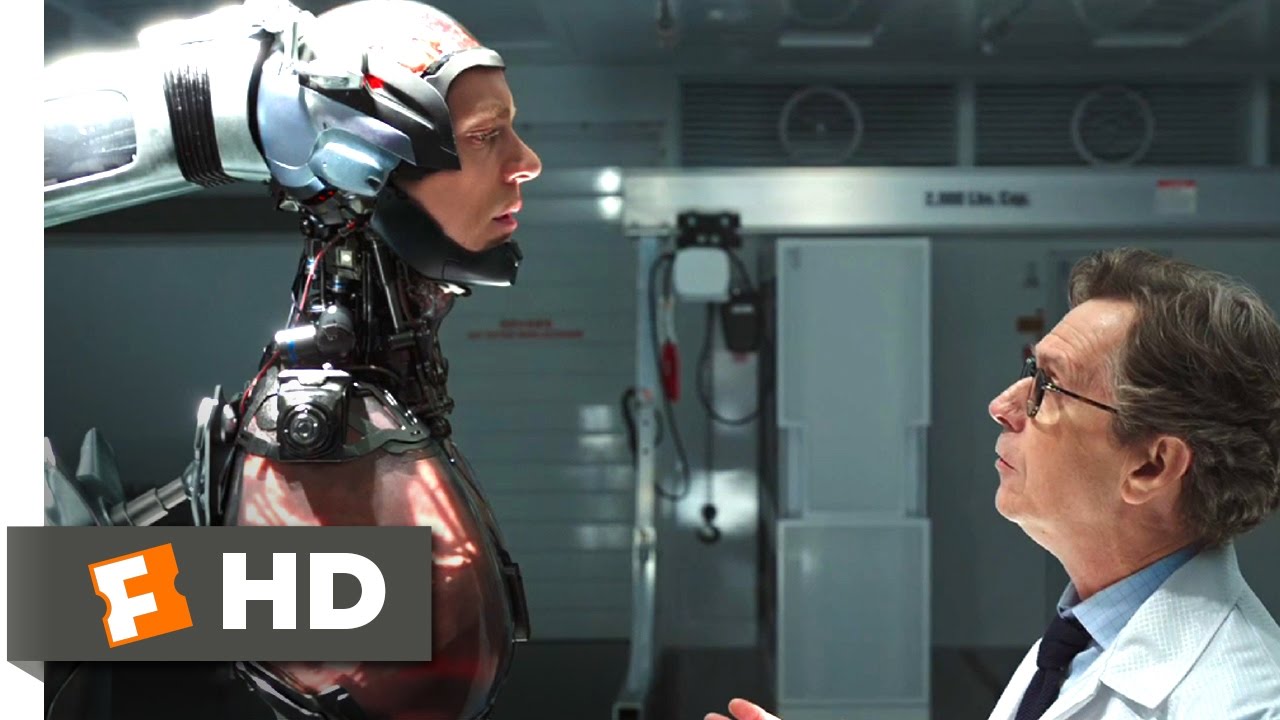In the pantheon of iconic characters from cinema, few stand out quite like Robocop. Since his explosive debut in 1987, this cybernetic law enforcer has evolved beyond mere fiction, shaping perceptions of policing, technology, and societal norms. Fast forward to 2026, and Robocop remains a cultural touchstone, inspiring fresh dialogues about authority, ethics, and the very essence of law enforcement. In this article, we’ll explore seven transformative aspects of Robocop that underscore his impact and relevance in both cinema and contemporary society.
7 Ways Robocop Influenced the Landscape of Modern Cinema
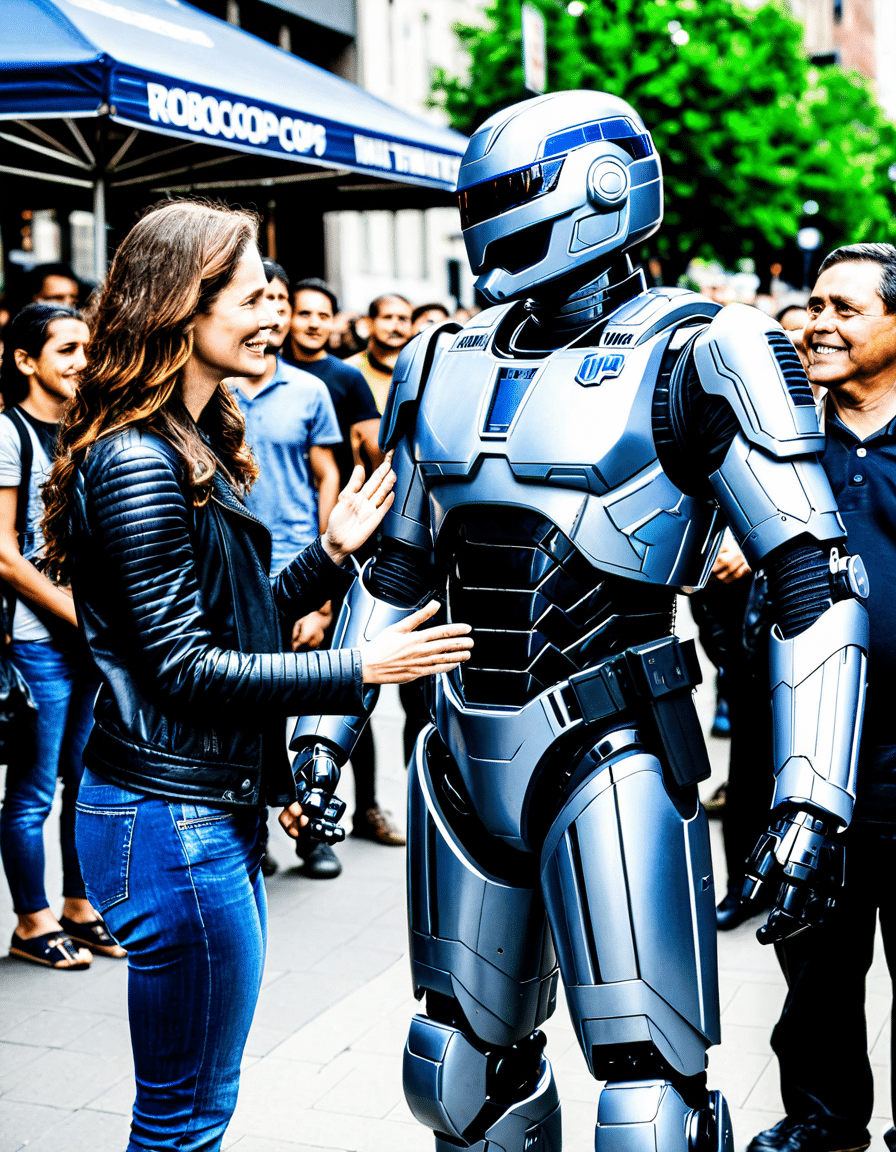
1. Futuristic Technology and Surveillance
The portrayal of groundbreaking technology in Robocop predated many real-world advancements we see today, including artificial intelligence (AI) and surveillance systems. With examples like AI algorithms used by companies such as Palantir and Clearview AI, Robocop’s vision of a monitored society hit home. We’re witnessing a rise in debates on privacy and civil liberties, just like the dilemmas faced in the film. If you thought the tech in Robocop was imaginative back in the ’80s, try explaining that to folks debating the ethical implications of facial recognition today!
2. Moral Ambiguity of Law Enforcement
Robocop challenges the black-and-white view of good versus evil. This duality is echoed in films like Training Day or series such as The Wire, where law enforcement appears as flawed and deeply human. Audiences no longer see cops in capes; instead, they encounter complex characters who wrestle with their ethics. By presenting law enforcement this way, Robocop paved the path for richer narratives in crime dramas today.
3. Corporate Control and Capitalism
The film critiques the overpowering influence of corporations on public life. This theme strikes a resonant chord with today’s discussions surrounding companies like Amazon and Google, who wield vast influence over our lives. Robocop draws parallels with our modern woes regarding “Big Tech” and their impact on policing and public accountability. As we dissect the effects of privatization in our society, Robocop’s world eerily mirrors our reality.
4. Impact on Action Genre
Robocop’s gritty, hard-hitting portrayal of violence significantly influenced the action genre. Films like John Wick and Mad Max: Fury Road adopted a similarly stylized approach to violence that underscores the protagonist’s moral journey amidst chaos. The action scenes aren’t just about explosions; they’re narratives that engage us, reminiscent of Robocop’s own quest for justice. This transition has shaped how audiences perceive and connect with action films today.
5. Cultural Symbol of Redemption
Redemption lies at the heart of Robocop’s tale. His journey mirrors the experiences of characters like Andy Dufresne from The Shawshank Redemption and Rocky Balboa from the Rocky series. Each serves up a reminder that the desire to reclaim one’s humanity is universal, resonating through generations. In a world where sympathy for antiheroes grows, Robocop stands tall as a beacon of hope and transformation.
6. Human-Cybernetic Relationship
With advances in robotics and AI becoming ever more integrated into our daily lives, the interplay between humanity and technology grows critical. Films like Ex Machina and series like Black Mirror dive into ethical dilemmas that echo Robocop’s plight. What does it mean to be human in an age of machines? This question, often explored through the lens of Robocop, invites audiences to critically engage with our tech-driven future.
7. Environmental Context of ‘Animal Kingdom’
Robocop presents a metaphorical link between law enforcement and the ‘animal kingdom.’ Just as nature seeks to rectify imbalance, Robocop strives to restore order in a chaotic urban environment. This juxtaposition prompts reflections on human instinct and action within our own wild nature. It highlights how both law enforcement and nature respond to corruption and disorder, resonating with themes seen in nature documentaries and contemporary action flicks.
The Evolution of Robocop: From Film to Legacy
Robocop’s journey has extended into animated series, graphic novels, and a 2014 remake, each adding depth to his saga. These adaptations reflect the character’s versatility, while sticking to the original themes that resonate with modern issues around policing, ethical AI, and the nature of justice. Just like Geek Girl Season 2, Robocop adapts while staying grounded in its roots, a fascinating feature that keeps discussions alive and kicking.
These constant adaptations demonstrate Robocop’s relentless relevance, serving as a powerful allegory not just for cinema but also for society. As public safety debates grow more complex, Robocop’s narrative invites us to scrutinize existing structures. The fusion of entertainment and reality couldn’t be clearer than in today’s climate, where movements for police reform mirror the themes explored in the film.
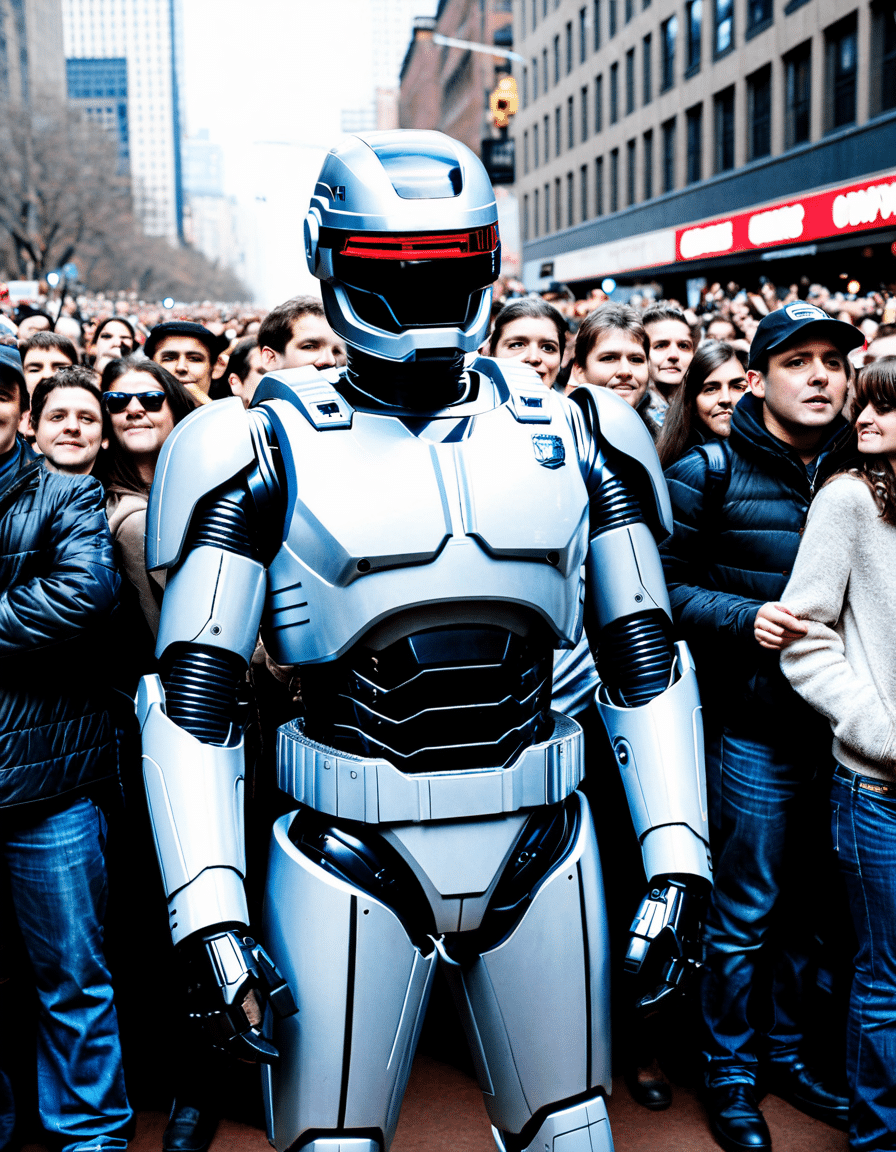
A Future Vision: Robocop in 2026 and Beyond
Looking ahead, as society grapples with advancing technology and its ramifications, Robocop stands as a reminder of our fragile balance between order and chaos. His narrative pushes us to look more closely at how technology impacts our views on justice and humanity. In a world where neither law enforcement nor technology operates in isolation, Robocop dares us to question the ethical grounding of these systems.
In an era defined by swift changes, discussions around automated policing and AI governance continue to intensify. Robocop serves not only as a cautionary tale but also as a beacon, inspiring audiences to reclaim their humanity amidst the mechanical. As we sift through Robocop’s legacy, we engage in a profound examination of that enduring relationship between humanity, technology, and governance.
In conclusion, Robocop isn’t just a relic of the past; he’s a living, breathing critique of our societal constructs and the dilemmas they foster. As we navigate our brave new world, discussions inspired by Robocop illuminate some of our most pressing challenges. So, the next time you tune into a gritty cop drama or dive into the latest AI thriller, remember what our beloved cybernetic crime fighter stands for. After all, the echoes of Robocop will resonate long into the future.
RoboCop: The Legendary Cybernetic Crime Fighter Revealed
Cybernetic Origins and Evolution
Did you know that RoboCop was originally inspired by various cultural references, including classic science fiction comics and movies? The character debuted in 1987, but the concept has roots reaching as far back as the atomic age, where fears of technology replacing humanity brewed. Just like Bad Boys 2 explores the intense camaraderie of law enforcement, RoboCop represents a fusion of human instincts and machine precision, highlighting the ongoing battle between man and technology.
Notably, the film was directed by Paul Verhoeven, who developed a knack for blending action and social commentary effectively. The genius behind RoboCop’s character design came from striking visuals and innovative filmmaking techniques that continue to influence cinema, akin to the distinct style showcased in “Season Brooklyn Nine-Nine.” Fans were captivated by RoboCop’s cold, efficient crime-fighting methods, leaving audiences to ponder important philosophical questions about identity.
A Crime-Fighting Icon
RoboCop, portrayed by Peter Weller, transitioned quickly from a summer blockbuster hit to a pop-culture icon. Curiously, Weller’s unique portrayal involved specific training to embody a robotic demeanor, echoing the dedication one might see in shows like Top Chef vip where participants hone their skills under pressure. Interestingly, while Weller was finding his footing as RoboCop, the film also faced challenges with censorship due to its graphic violence, which was a bold move for the late ’80s.
Fun fact: the movie spawned several sequels and a TV series, indicating its lasting impact on audiences and filmmakers alike. Similar to how film casts, like the Presumed Innocent cast, come together to create compelling narratives, RoboCop paved the way for further explorations in technology-driven storytelling. You might even say that the dystopian themes of RoboCop resonated through various genres, reminding us of society’s complexities, much like the picturesque scenes of Edmonds WA serve as a backdrop to a serene life—showing contrasts between reality and cinematic dystopias.
Behind the Scenes Magic
Behind each iconic scene in RoboCop, there were creative minds working tirelessly to construct a world that mirrored our own, yet whispered warnings about the future. The special effects used in the film were groundbreaking for their time, blending practical effects with the early stages of CGI. It’s reminiscent of how the 67th Annual grammy awards showcased technological advancements in live music, pulling viewers into an engaging experience.
In the end, RoboCop remains an enduring figure, often reminisced about in late-night chats and movie marathons. With its catchy one-liners and an unforgettable premise, this cybernetic antihero stands tall among legends in cinema history, much like a well-fitted sleeveless shirt stands out in a crowd. The battle between humanity and technology is ongoing, bringing audiences back to RoboCop time and time again, revealing the multi-layered themes that, like fine art, deserve a deep dive into their narratives.
